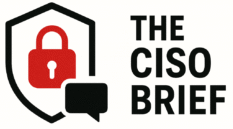Essential Insights
-
Kingsley Uchelue Utulu, a Nigerian national, has been sentenced to 63 months in prison for participating in a hacking scheme targeting US tax preparation companies since 2019, resulting in identity theft and fraudulent tax returns.
-
The cybercriminals stole personal information from thousands of individuals, leading to attempted fraudulent tax returns valued at approximately $8.4 million, of which at least $2.5 million was successfully obtained.
-
The stolen identities were also exploited to file deceptive claims with the SBA’s Economic Injury Disaster Loan program, yielding around $819,000 for the fraudsters.
- In addition to his prison sentence, Utulu must pay over $3.6 million in restitution and forfeit nearly $290,000; other involved parties, including Matthew Akande, face similar charges and extraditions.
Problem Explained
In a significant judicial ruling, a U.S. court has sentenced Nigerian national Kingsley Uchelue Utulu to 63 months in prison for his involvement in a sophisticated hacking and identity theft scheme targeting American tax preparation companies. Authorities revealed that Utulu, active since 2019, orchestrated a coordinated cyber assault that compromised the sensitive information of thousands of individuals, primarily to file fraudulent tax returns. The audacious scheme sought to unlawfully claim approximately $8.4 million, ultimately yielding at least $2.5 million in illicit gains. Additionally, the stolen identities were exploited to fraudulently access the Small Business Administration’s Economic Injury Disaster Loan program, facilitating the extraction of another $819,000.
Official reports indicate that Utulu’s arrest occurred in the UK, subsequent to which he was extradited to the United States. He has also been mandated to pay over $3.6 million in restitution and forfeit roughly $290,000. This case is part of a broader crackdown on Nigerian cybercriminals, highlighted by rising prison sentences—ranging from five to 26 years—imposed by U.S. courts. Similar charges have been brought against Utulu’s associates Matthew Akande and Kehinde Oyetunji, with Akande’s extradition announced in March 2025 and ongoing legal proceedings indicating a persistent effort to dismantle these cybercrime networks.
Critical Concerns
The recent sentencing of Kingsley Uchelue Utulu underscores a looming threat not only to tax preparation firms but also to a wider spectrum of businesses and organizations, particularly those handling sensitive data. The infiltration and exploitation of tax systems have ramifications that reverberate beyond the immediate financial losses. Companies could face substantial reputational damage, eroding customer trust and loyalty as users become increasingly wary of data security. Furthermore, the potential for compromised personal identities can lead to cascading effects, where victims of identity theft may seek legal recourse, prompting costly litigation for organizations deemed liable for inadequate cybersecurity measures. Additionally, when the integrity of financial systems is undermined, it prompts stricter regulatory scrutiny, which could increase compliance costs and operational burdens for businesses across sectors. The collaborative nature of these cybercriminal schemes illustrates how vulnerabilities in seemingly isolated entities can catalyze a domino effect, impacting users, other businesses, and organizations, ultimately highlighting the urgent need for robust cybersecurity protocols and vigilant risk management practices to mitigate these pervasive threats.
Possible Next Steps
Understanding Timely Remediation
The recent sentencing of Nigerian individuals for hacking U.S. tax preparation firms underscores the pressing necessity for timely remediation—an essential safeguard in the realm of cybersecurity.
Mitigation Steps
– Incident Response Planning
– Cyber Hygiene Practices
– Employee Training
– Regular Security Audits
– Data Encryption
– Access Controls
– Threat Intelligence Sharing
NIST CSF Summary
The NIST Cybersecurity Framework (CSF) emphasizes proactive measures to identify, protect, detect, respond, and recover from cyber incidents. For detailed guidance on responding to breaches, refer to NIST SP 800-61, which outlines the Computer Security Incident Handling Guide.
Continue Your Cyber Journey
Discover cutting-edge developments in Emerging Tech and industry Insights.
Learn more about global cybersecurity standards through the NIST Cybersecurity Framework.
Disclaimer: The information provided may not always be accurate or up to date. Please do your own research, as the cybersecurity landscape evolves rapidly. Intended for secondary references purposes only.
Cyberattacks-V1

